Have you ever come across an SEO tool promising a #1 Google ranking overnight or any other impossible promises? In this blog, we’ll guide you with an example on how you should avoid trusting fake tools like DominatingKeywords.
If you’re investing time or money into SEO, you deserve real results—not vanity metrics or unrealistic guarantees. So how can you spot fake SEO tools? And more importantly, how can you protect your business from their misleading promises? One effective way is by partnering with a trusted SEO audit agency that offers transparency, data-backed insights, and customized strategies tailored to your business goals.
Let’s break it down.
Most unreliable SEO tools rely on marketing buzzwords and exaggerated claims to attract beginners. Here are some common promises:
These claims may sound convincing, but here is the real question:
If SEO were really that easy, why isn’t everyone ranking on the first page of Google?
According to a 2023 HubSpot report, 56 percent of marketers have used SEO tools that failed to deliver promised results. The line between useful tools and deceptive ones is becoming harder to distinguish.
Use this checklist to determine whether an SEO tool is reliable or misleading:
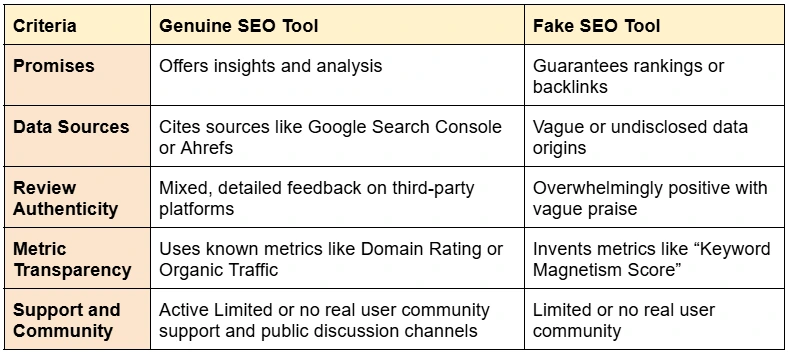
Additionally consider:
Does it guarantee rankings instead of offering insight?
No real tool can manipulate Google’s algorithm. Reliable tools provide data, not results.
Are the metrics clear and industry-standard?
Watch out for terms like “Rank Booster Index” that lack clear definitions or SEO relevance.
Is the company verifiable?
Check for a real website, a named team, and traceable business information.
Are reviews consistent across platforms?
Check independent platforms like G2, Trustpilot, or Capterra for objective feedback.
👉 Want to get an Yearly SEO plan to grow Google and ChatGPT traffic? Book a call for personalized organic strategy.
Recently, I got an email from Gary Charles ( Dominating Keywords) claiming that they can deliver guaranteed, keyword-targeted traffic without SEO or Pay-Per-Click within 48 hours, just by using my site’s top keywords.
I was shocked and surprised to see their offering and then I decided to try their tool. On visiting the site, I saw an option called Demo where they claimed to generate traffic from the banner shown below, which is not possible because no search engine displays this type of banner in their search results.
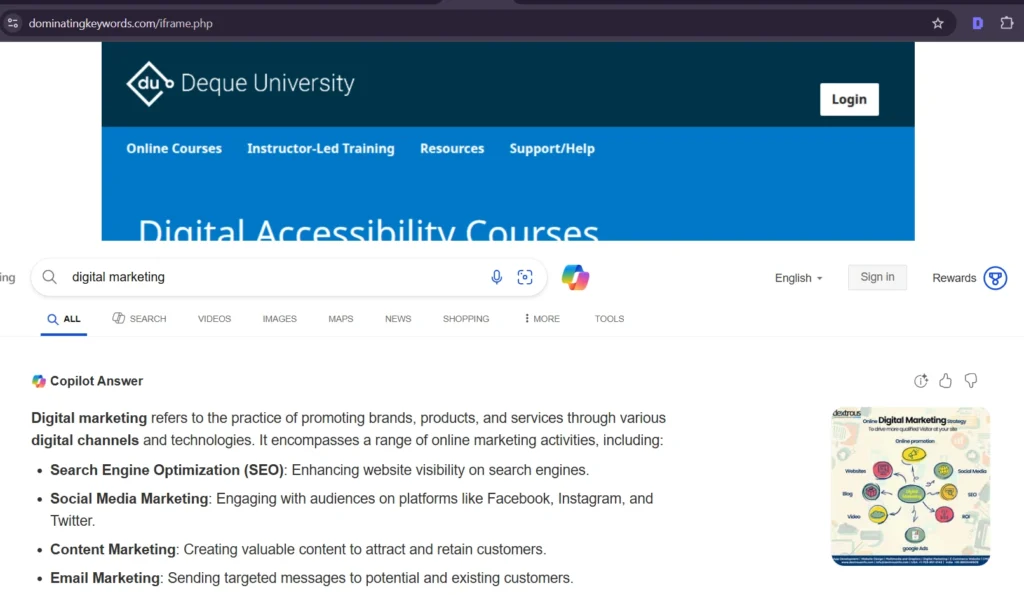
The reason why this tool’s offering seems impossible is – Nobody except their developers have the access of Google and Microsoft Edge search engines functionalities. Neither of them displays this kind of banner at the top of their search results.
Check below screenshots, this is how a search engine generally looks like –
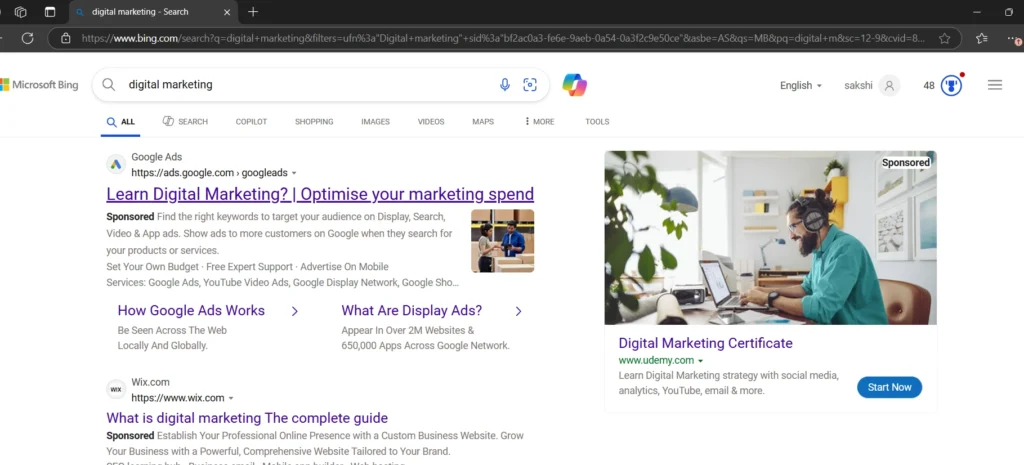
(Bing Search Engine Page Screenshot)
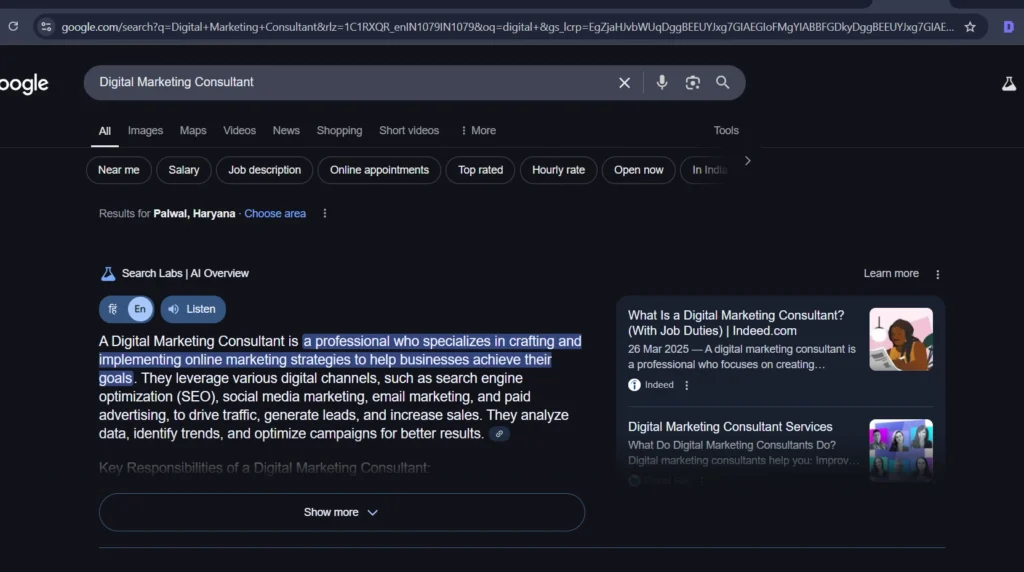
(Google Search Engine Page Screenshot)
This fake SEO tool is exclusively offering ownership of your keywords and claims to drive traffic to your site within 48 hours. They state: “What if you could have the exclusive rights to a keyword that displayed a 1200×300 display ad to an audience of millions of consumers every time your exact match keyword was used in a search query?” These are their exact words, aimed at grabbing the attention of people who lack basic knowledge about SEO.
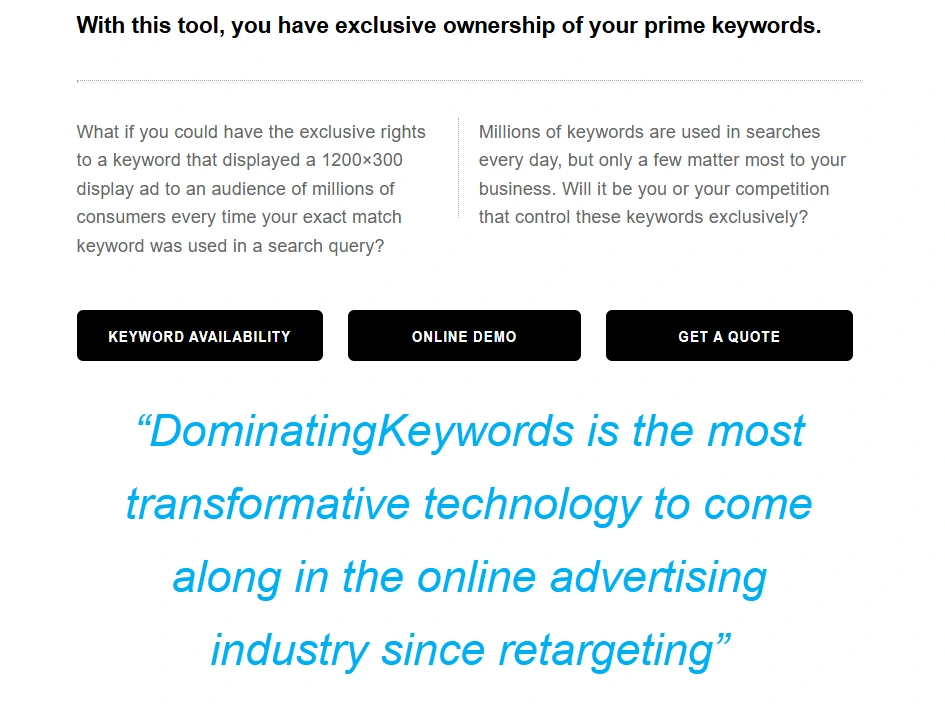
(The above screenshots show the promises or claims they are making)
These promises are misleading because Google’s algorithm is complex and influenced by over 200 factors, including domain authority, backlinks, user behavior, and content quality. No tool or service can guarantee rankings or banner ads (like this fake tool) without a search engine’s own setup like Google Ads or Bing Ads.
Dominating keywords is also claiming to give “Exclusive Keyword Rights” to businesses & companies who may fall in trap and pay them for an offering which is not viable.
So, stay alert and do your research before buying any SEO or SEM tool offerings.
Fake tools do not just waste money. They can actively damage your SEO standing:
Here are some red flags in these fake SEO tools to look out for –
Fake tools exploit your need for fast results. But SEO takes 3 to 6 months to show sustainable growth. Ask yourself: Is this tool offering a long-term strategy or a quick fix?
Terms like “Authority Surge Score” may sound scientific but are usually meaningless distractions.
According to Search Engine Journal (2022), 28 percent of penalized websites had used questionable SEO automation tools.
Google has strict guidelines. Tools that auto-generate backlinks or spin content can trigger manual penalties or even result in your site being de-indexed.
To help you identify red flags more easily, here are a few examples of tools that have gained attention for their bold marketing but fall short when it comes to real SEO value. These tools often rely on misleading claims, unreliable metrics, and risky practices that can harm your website’s performance rather than improve it.
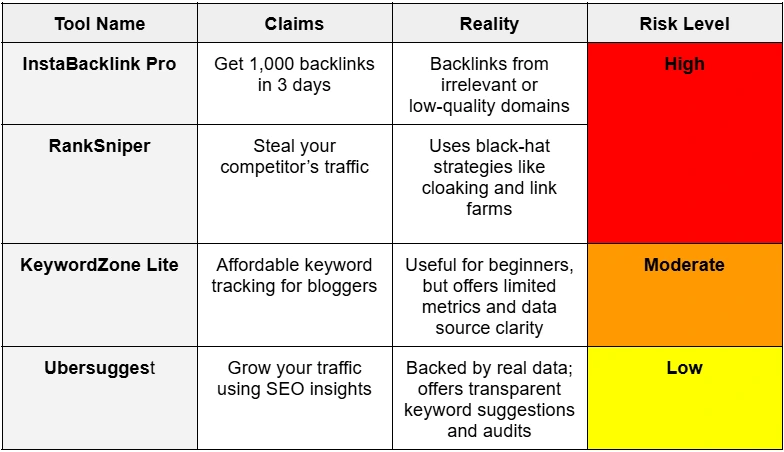
Here is a quick comparison of reputable tools that offer real, measurable value:
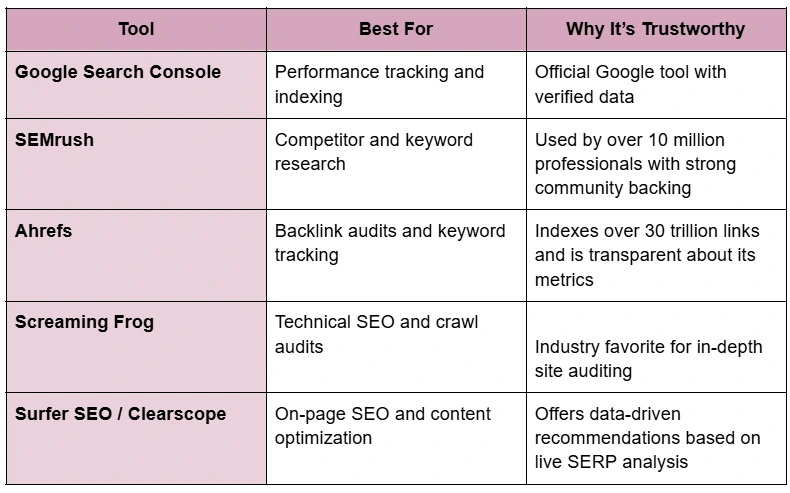
In the evolving world of digital marketing, falling for deceptive SEO tools can do more harm than good. Misleading promises not only waste your budget but can also damage your rankings and credibility. Whether you’re optimizing your website or expanding your reach through channels like WhatsApp marketing, it’s essential to prioritize tools that offer data transparency, industry-backed metrics, and sustainable strategies. Remember, SEO is a long-term process—invest wisely and avoid shortcuts that cost more than they deliver.
While avoiding fake SEO tools is crucial, it’s equally important to know what does work. Explore our guide on how to grow with effective digital strategies to discover reliable tools and proven methods that can actually drive results for your business.

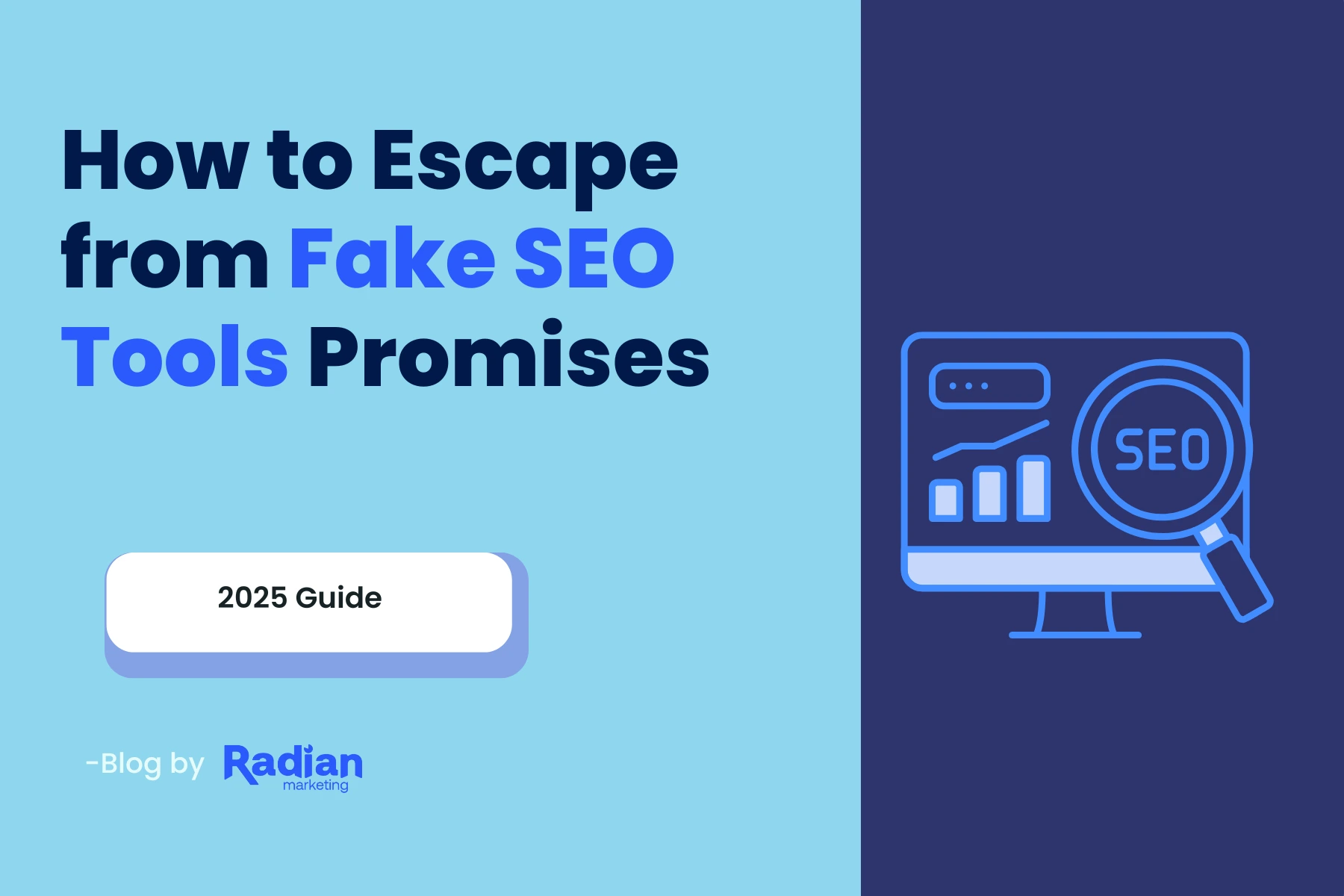
Bhaskar Gupta
Bhaskar Gupta is a passionate digital marketing practitioner and has keen interest in SEO, Social Media Strategy, Business Digital growth, and Performance marketing. He has worked with multiple brands in different industries across India and abroad. In 2022, he has set up his own digital growth and marketing agency named Radian Marketing.